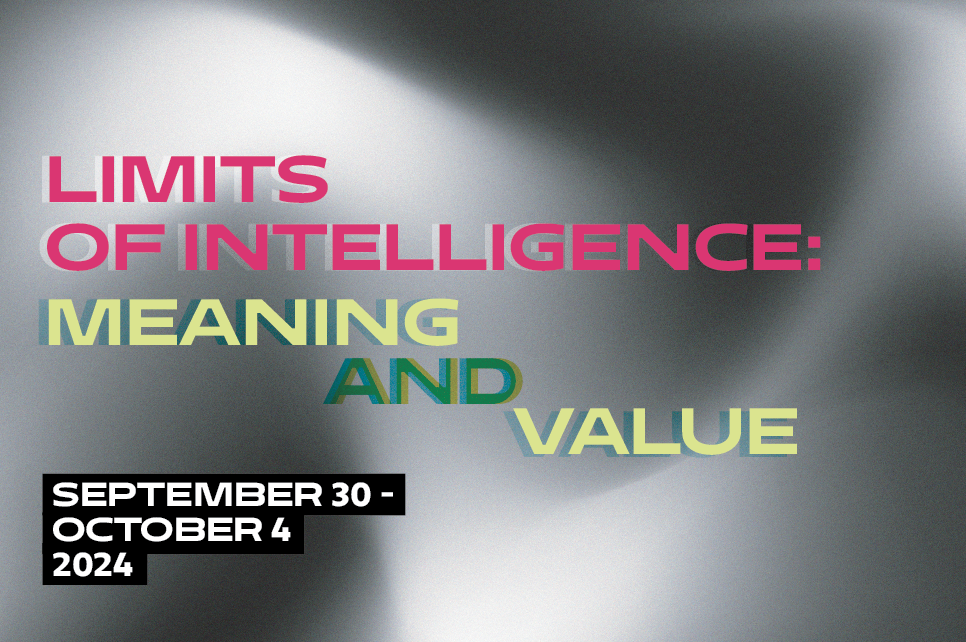
Limits of Intelligence: Meaning and Value
Modern knowledge-societies value intelligence as a set of problem-solving capacities. In recent years, we have entered a technology summer which draws on accelerated progress in AI research and the large-scale socio-economic and political implementation of ‘intelligence’ technology. In our Fall workshop at the Institute for Philosophy and the New Humanities we question some assumptions underlying this socio-political constellation: What, if anything, are the limits of intelligence? Which concepts of intelligence, rationality, and thought are operative in AI research and technoscientific progress? In particular, we will focus on existential and linguistic meaning, moral and aesthetic value, as potential limits to intelligent processing. Our goal is to draw the contours of a novel type of ethics of intelligence (including the ethics of AI which is in high demand right now) that takes the fuzzy, historically changing, and apparently non-computable nature of values into account. This requires us to recalibrate our sense for it is to understand meaning and value in an age where intelligence and even understanding seems to emerge in the realm of our technoscientific artifacts.
Recent developments in artificial intelligence have seemed to many like a confirmation of the unboundedness of cognition, of the identification of logic with metaphysics, of being with intelligibility. For many others, the limits of intelligence do not fit neatly with the contours of what exists. Since Rousseau and Kant, at least, it has seemed to many in this latter group that moral and aesthetic experience, questions of meaning and value, cannot be comprehended cognitively. In other words, our moral and aesthetic lives are shaped by the inability of cognition to account for, or provide foundations for, meaning and value. The limits of intelligence, therefore, open the chance to talk about meaningfulness and value anew. Such a chance is, arguably, the ground from which the modern humanities emerge. We will explore the role that this ground of the humanities ought to play for a new type of value theory of AI together with distinguished keynote speakers, Fumi Okiji (Berkeley), Jocelyn Maclure (McGill), Sebastian Gardner (London), Michael Clune (Case Western), Aimee van Wynsberghe (Bonn). IPNH co-directors Markus Gabriel, Paul Kottman and Zed Adams will discuss these interventions. This year, Yasuo Deguchi (Kyoto) will give the Forum Humanum Lecture.
Date: September 30-October 4, 2024
Schedule 2024
Monday, September 30th, 4pm — Sebastian Gardner (University College London) “Self-Doubling, Irony, and the I”
Tuesday, October 1, 4pm — Fumi Okiji (University of California, Berkeley) “Òrò and ornament. Or Benjamin meets black study behind a curtain”
Wednesday, October 2nd, 4pm — Jocelyn Maclure (McGill University) “Comparing the Human Mind and Deep Neural Networks: Intelligence, Bounded Rationality and Epistemic Dependance”
Thursday, October 3rd, 10am — Michael Clune (Case Western Reserve University) “William James and Aesthetic Education.”
Friday, October 4th, 10am — Aimee van Wynsberghe (Bonn) “Repairing AI for Environmental Justice“
Friday, October 4th, 4pm (Forum Humanum Lecture) — Yasuo Deguchi (Kyoto) “WE-turn: From Incapability to a Society of Multilayered Values”